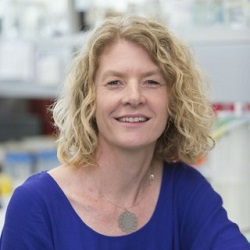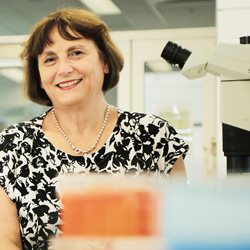April 8, 2019 Print
Sunday 7 April is World Health Day. The theme is universal health coverage, which refers to health services (such as medication, treatment) and health care that are affordable and accessible to everyone, regardless of their financial and personal circumstances.
A strong belief in universal health coverage underlies the work carried out at The Westmead Institute for Medical Research.
Many of our researchers are clinicians at Westmead Hospital, which helps us understand the health issues affecting patients, how they are impacted, and what diseases and conditions our research needs to focus on.
In researching and developing new and effective treatments, cures and preventions for some of the world’s leading health issues, such as cancer, heart disease, mental illness and diabetes, we also aim to find the most cost-effective way to offer these treatments to the public.
The Westmead Institute for Medical Research is pioneering several new treatment options for a range of diseases based on precision medicine. These personalised treatments, diagnostic methods, and tests will minimise side effects, and maximise health outcomes for patients.
Improving treatment decisions for breast cancer: The PROSPER-2 test

A new low-cost test could help breast cancer patients choose the best treatment option, giving them the best shot at a cancer-free future.The
PROSPER-2 test, which is currently in trial, analyses the whole genome of a tumour to find markers that indicate how aggressive a tumour is and whether a patient is likely to relapse following treatment or surgery.
The results of the test are used to tailor individual treatment to patients, ensuring they receive the best treatment option and available care.
Lead researcher
Dr Dinny Graham said the test could help thousands of breast cancer patients receive the right treatment.
While similar tests currently exist, they can cost up to $5000. The PROSPER-2 test could be offered to patients for less than $100 in Australian clinics.
Personalising ovarian cancer treatment: The INOVATe study

Approximately 1,600 Australian women are diagnosed with ovarian cancer each year. While the health outcomes for patients affected by other cancers have improved in recent years, the survival rate for ovarian cancer has remained comparatively poor; the five-year survival rate is just 40%.
Previously, ovarian cancer was treated with a ‘one size fits all’ approach. We now know that this isn’t always effective.
The
INOVATe study, led by
Professor Anna deFazio, uses DNA sequencing and intensive molecular testing to understand the biology of tumours, and uses this information to help direct patients to the most relevant clinical trials.
The study aims to find out as much as possible about each individual tumour as soon as a patient is diagnosed. If a patient relapses, researchers and clinicians are pre-armed with the information needed to direct them to an appropriate clinical trial.